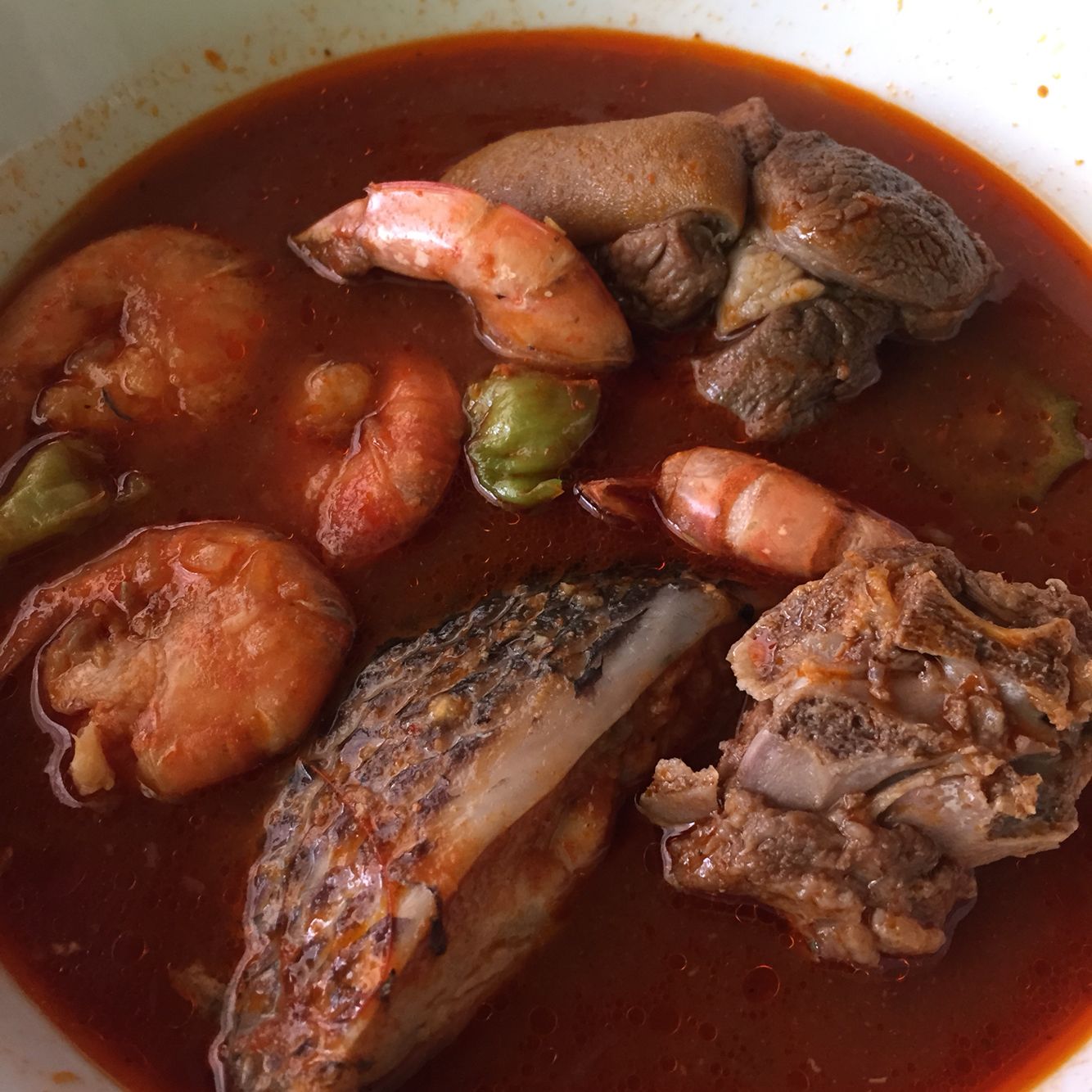Our soups are a major determinant of the deliciousness of our favourite delicacies. Imagine banku without okro soup or fufu without palm nut soup; these meals will just not go right. Even if the soup turns out to be tasteless; the whole meal is ruined.
It is also worth noting that soups are one of the major components of our food that can make the whole meal either healthy or unhealthy. This depends on the ingredients used in making these soups.
One interesting fact is that the same soup can either be healthy or unhealthy; it all depends on how you make it. So you can have a favourite soup, yes; but endeavor to make that soup healthy all the time.
Oily soups like groundnut soup and palm nut soup are often seen by many as unhealthy. The reason for this assertion is the presence of so much oil in these soups. The fact is that these soups cannot be grouped generally unhealthy.
It is true that eating lots of oil is not the best of dietary practices but that does not make oil a bad food item entirely. A little of it is required to make food balanced in nutrients and energy and healthy. So when cooking these soups that come out with lots of oil, take out some of the oil. That makes them healthier.
Also desist from drinking so much of the soups because of their oily nature. It also helps if you do not eat them too often. Are these oily soups part of your late night cuisine?
There is the need to re-think your meal patterns because your otherwise healthy soup will now be forced to turn against you and cause ill-health because you eat them late at night.
Leafy and non-leafy vegetable based soups like ebunu-ebunu and okro soup are usually seen to be healthy. Reason is the presence of the veggies which are no doubt good ingredients. This assertion cannot be entirely true because such vegetable soups are often prepared with loads of oil.
So if one erroneously works with the assertion that vegetable soups are healthy without any recourse to the nature of the soup that is the other ingredients like oil used in these soups, they will end up eating the wrong soup in terms of their health and wellness.
The point here is that we should make these vegetable soups with little or no oil. In that case, we can take them knowing that we will not end up with excess-food related sicknesses.
Where it becomes necessary to reduce one’s carbohydrate portions, taking lots of the oil-less vegetable soups will guarantee the achievement of satiety. Health goals can then be attained easily. Soups fill us up because they stretch the stomach.
We all know that soups serve as a receptacle for many ingredients in the name of spices and condiments all with the aim of making them taste good, smell good and/or look good.
When the attainment of these three goals are not managed well, the healthfulness of the soup can be compromised. Keep an eye on salt. Too much of it can ruin your soup to the extent that you may not be able to eat them. Secondly, plenty salt can cause health problems.
The fish and meat in soups are also a major source of concern when it comes to making soups healthy. Keep meat fat-free as much as possible and you are good to go.
Grilling or smoking meat to reduce the fat content is a good thing to do. Fried fish can taste great in soups but there is no great point in using them for soup for most people.
So you see, your favourite soup is healthy only if you make it so. A healthy diet is actually what you make it and so drop the use of ingredients that make your soups unhealthy.
Do not take oily soups too often. Also make your vegetable soups with little or no oil. If done well, you can eat your favourite soup every day.
Enjoy your favourite soup!!!Â
By Wise Chukwudi Letsa
• The writer is a DIETICIAN at the Trust Hospital and AUTHOR of the following books;
1. Be your own dietician – Vol. 1
2. Eating to prevent and manage lifestyle diseases.
3. LIVE LONG by eating well – Vol. 1





